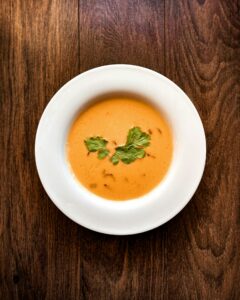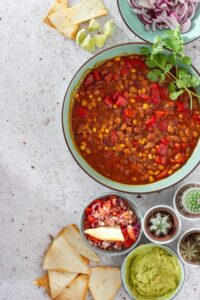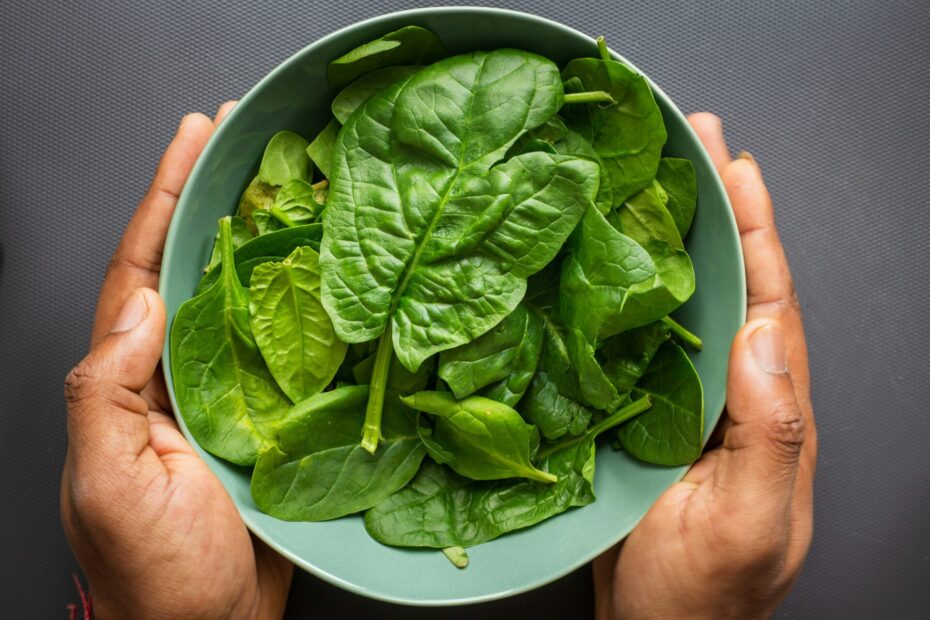Are you looking for ways to ensure that your baby or toddler is getting enough iron in their diet to keep their energy levels up? Look no further! In this article, we will explore a variety of delicious and nutritious iron-rich meals for toddlers that are sure to give your little one the boost they need. From spinach and lentil purees to beef and broccoli stir-fries, you’ll find plenty of ideas to ensure that your child is getting the iron they need for optimal growth and development. So get ready to get creative in the kitchen and watch your little one thrive with these iron-rich meals!
1. Introduction
Welcome to the world of parenthood, where ensuring the health and well-being of your little one is a top priority. As parents, we are always on the lookout for ways to support our babies and toddlers’ growth and development. One essential nutrient that plays a crucial role in their overall health is iron. In this article, we will explore the importance of iron for babies and toddlers, discuss iron-rich foods, provide meal ideas, and offer tips for cooking tasty and nutritious iron-rich meals. So, let’s dive into how iron-rich meals can energize and support the development of your little one.
2. Importance of Iron-Rich Meals for Toddlers
2.1 Deficiency Risks
Iron deficiency is a common concern among babies and toddlers, and it can have significant consequences on their health and development. Anemia, a condition characterized by low levels of red blood cells and hemoglobin, is one of the potential risks of iron deficiency. It can lead to symptoms such as fatigue, weakness, and pale skin. Moreover, iron deficiency may impact cognitive function and result in delays in growth and development. Thus, it is vital to incorporate sufficient iron into your toddler’s diet to support their overall growth and health.
2.2 Energy Levels and Growth
Iron plays a vital role in transporting oxygen throughout the body, which is essential for energy production. When babies and toddlers have sufficient iron levels, their energy levels remain high, allowing them to grow, explore, and reach developmental milestones. Iron also supports the production of new cells and tissues, contributing to healthy growth and development during these crucial early years.
2.3 Cognitive Development
Iron is fundamental not just for physical but also cognitive development. Research suggests that iron deficiency during early childhood can have long-lasting effects on cognitive function, including memory, attention, and problem-solving skills. By incorporating iron-rich foods into your little one’s diet, you can help support their brain development and ensure they have the best possible foundation for learning and success later in life.
3. Iron-Rich Foods for Babies
Introduce your baby to a variety of iron-rich foods as they start on solids:
- Pureed Meats: Pureed meats, such as chicken, beef, and turkey, are excellent sources of easily absorbable heme iron. When introducing solid foods to your baby, consider adding pureed meats to their diet. Start with small amounts and gradually increase the portion sizes. Mixing pureed meats with fruits or vegetables can provide a balanced and nutritious meal for your baby.
- Iron-Fortified Cereals: Iron-fortified cereals are another fantastic option to provide your baby with a good source of iron. These cereals are specifically formulated to support your baby’s iron requirements and are often easy to digest. Look for cereals that are labeled “iron-fortified” and choose whole grain options whenever possible.
- Leafy Green Vegetables: Leafy green vegetables, such as spinach, kale, and broccoli, are not only rich in iron but also packed with other essential nutrients. However, it is important to note that the iron in plant-based foods, like leafy greens, is non-heme iron and is not as easily absorbed by the body compared to heme iron. To enhance iron absorption, pair these vegetables with foods high in vitamin C, such as citrus fruits or tomatoes.
- Beans and Legumes: Beans and legumes, including lentils, chickpeas, and black beans, are excellent plant-based sources of iron. They are also high in fiber and protein, making them a nutritious addition to your baby’s diet. To make the iron in beans and legumes more bioavailable, soak and cook them properly, or opt for canned varieties that have already been cooked.
- Iron-Fortified Baby Formula: If you are formula feeding your baby, consider choosing an iron-fortified baby formula. These formulas are specifically formulated to meet your baby’s iron needs, especially if breastfeeding is not sufficient or not possible. Consult with your pediatrician to determine the most suitable formula for your baby’s nutritional needs.
4. Iron-Rich Meals for Toddlers
As your baby transitions into the toddler stage, their nutritional needs continue to evolve. Here are some iron-rich meal ideas that will keep your active toddler fueled and healthy.
4.1 Spinach and Lentil Soup
A warm bowl of spinach and lentil soup is packed with iron, vitamins, and minerals. To prepare this nutritious meal, sauté onions, garlic, and a cup of lentils in olive oil. Add vegetable or chicken broth, a generous amount of fresh spinach, and your favorite herbs and spices. Simmer until the lentils are tender and the flavors meld together. Blend the soup until smooth for a toddler-friendly consistency.
4.2 Quinoa and Chicken Stir-Fry
Quinoa is a complete protein and a great source of iron for toddlers. Pair it with lean chicken breast, colorful vegetables, and a sprinkle of low-sodium soy sauce or a squeeze of fresh lemon juice. Stir-fry the ingredients until cooked through, and you’ll have a delicious and nutritious meal that your toddler will love.
4.3 Beef and Sweet Potato Mash
Beef is a rich source of heme iron, making it an excellent choice for iron-rich meals. Combine cooked, finely minced beef with mashed sweet potatoes for a tasty and nutritious meal. The natural sweetness of the sweet potatoes pairs well with the savory flavor of the beef, making this dish a toddler favorite.
4.4 Tofu and Broccoli Stir-Fry
Tofu is an excellent plant-based source of iron, and when combined with vibrant broccoli florets, it creates a delightful stir-fry that even the pickiest of toddlers will enjoy. Slice firm tofu into small cubes and stir-fry it with a generous amount of broccoli florets. Add some garlic, ginger, and a splash of low-sodium soy sauce for flavor. Serve over steamed rice or noodles for a complete meal.
4.5 Oatmeal with Chia Seeds and Berries
Start your toddler’s day off right with a nutrient-packed breakfast bowl of oatmeal. Cook steel-cut or rolled oats with water or milk and add a spoonful of chia seeds for an extra boost of iron and omega-3 fatty acids. Top with a variety of fresh berries for added antioxidants and natural sweetness. This simple and hearty meal will keep your toddler energized throughout the morning.

Photo by Jezebel Rose on Unsplash
5. Tips for Cooking Iron-Rich Meals
Preparing delicious and nutritious iron-rich meals for your little one doesn’t have to be complicated. Here are some tips to help you maximize the iron content in your cooking:
5.1 Pair Iron-Rich Foods with Vitamin C
To enhance iron absorption, pair iron-rich foods with sources of vitamin C. Citrus fruits, tomatoes, strawberries, and bell peppers are all excellent options. Adding a squeeze of lemon juice to leafy greens or including tomatoes in meat-based dishes can significantly increase the iron absorbed by your little one’s body.
5.2 Use Cast Iron Cookware
Cooking with cast iron cookware can increase the iron content of your meals. The iron from the cookware can leach into the food during cooking, providing an additional source of this essential nutrient. However, it is important to properly season and care for your cast iron cookware to prevent rust and maintain its non-stick properties.
5.3 Soak and Cook Legumes Properly
If you incorporate legumes into your little one’s meals, it is essential to soak and cook them properly. Soaking legumes overnight and rinsing them thoroughly before cooking can help reduce the compounds that inhibit iron absorption. Additionally, boiling legumes until they are tender ensures optimal iron bioavailability.
5.4 Avoid Excessive Dairy Consumption
Calcium-rich dairy products, while important for your child’s bone health, can inhibit iron absorption when consumed in excess. To ensure your little one is getting enough iron from their meals, consider limiting the consumption of dairy products during mealtime or pairing them with non-dairy iron-rich foods.
5.5 Monitor Cooking Time to Retain Iron Content
Proper cooking times can help retain the iron content in foods. Overcooking vegetables, especially those high in iron, can lead to nutrient loss. Steaming or lightly cooking vegetables will help preserve their iron content, ensuring your little one receives the maximum nutritional benefit.
6. Creative Ways to Incorporate Iron-Rich Foods

Photo by micheile henderson on Unsplash
Make iron intake fun and creative:
- Iron-Fortified Pancakes: Mix iron-fortified flour with your pancake batter and top with fresh fruits for a delicious breakfast.
- Mini Meatballs: Serve small, bite-sized meatballs made with ground beef or turkey as a finger food.
- Smoothies: Blend spinach with fruits high in Vitamin C like oranges or strawberries for a tasty smoothie.
7. Meal Ideas and Recipes
Ensuring your toddler enjoys a variety of iron-rich foods can be both fun and creative. Here are detailed meal ideas and recipes to help inspire your menu:
- Egg Muffins with Spinach and Cheese
- These mini egg muffins are easy to prepare, rich in iron, and perfect for breakfast or as a snack. Whisk together eggs, chopped spinach, shredded cheese, and a bit of milk. Pour into muffin tins and bake until set. Serve warm.
- Recipe link: https://www.simplystacie.net/spinach-cheese-egg-muffins/
- Sweet Potato and Lentil Nuggets
- These nuggets are a fantastic finger food, packed with nutrients and kid-approved. Mash cooked sweet potatoes with cooked lentils, add breadcrumbs, and season to taste. Shape into small nuggets, bake until golden, and serve with a yogurt dip.
- Recipe link: https://www.tiktok.com/@sairasteelman/video/7234623442161536298
Recipe link: https://www.blackmores.com.au/kids-health/sweet-potato-and-lentil-nuggets
- Fish Tacos with Mango Salsa
- Use iron-rich fish like salmon or tuna to make these delightful tacos. Serve the grilled or baked fish in small tortillas with a topping of mango salsa made from fresh mango, cilantro, lime juice, and chopped red onions.
- Recipe link: https://www.allrecipes.com/recipe/233899/healthy-fish-tacos-with-mango-salsa/
- Beef and Broccoli Stir-Fry
- This quick and nutritious stir-fry is perfect for dinner. Stir-fry small pieces of beef and broccoli florets in a bit of oil, garlic, and soy sauce. Serve over rice or noodles for a fulfilling meal.
- Recipe link: https://www.dinneratthezoo.com/beef-and-broccoli-stir-fry/
- Chicken and Spinach Pasta
- Combine cooked pasta with sautéed chicken strips, fresh spinach, and a creamy sauce. This dish is not only full of iron but also tastes delicious and is easy to eat for little ones.
- Recipe link: https://healthyfitnessmeals.com/chicken-spinach-pasta/
- Veggie-Packed Meatloaf
- A traditional meatloaf with a twist, incorporating finely chopped vegetables and using lean ground beef or turkey. Mix in some grated carrots, zucchini, and spinach for extra nutrients and bake until cooked through.
- Recipe link: https://anaankeny.com/veggie-packed-meatloaf/
- Iron-Fortified Oatmeal Pancakes
- Start the day with pancakes made from iron-fortified oatmeal flour. Mix the flour with eggs, milk, and a touch of vanilla for flavor. Cook on a hot griddle and serve with fruit toppings or a drizzle of honey.
- Recipe link: https://plantbasedjuniors.com/vegan-baby-cereal-pancakes/#wprm-recipe-container-471
- Quinoa Veggie Salad
- Quinoa is a great source of non-heme iron. Mix cooked quinoa with chopped veggies like bell peppers, cucumbers, and tomatoes, and add a squeeze of lemon and a drizzle of olive oil for a refreshing salad.
- Recipe link: https://www.allrecipes.com/recipe/172050/quinoa-vegetable-salad/
- Lentil Soup with Tomatoes
- This hearty soup is easy to make and comforting. Simmer lentils with diced tomatoes, vegetable broth, and a mix of herbs for a tasty meal that’s rich in iron.
- Recipe link: https://www.simplystacie.net/tomato-lentil-soup/#wprm-recipe-container-150565
By incorporating these meal ideas into your toddler’s diet, you’ll provide them with delicious, iron-rich options that contribute to their health and development.
8. Signs of Iron Deficiency and When to Seek Medical Advice
Iron deficiency can be subtle, and its symptoms might not always be immediately apparent. As a parent, it’s important to be aware of the signs that might indicate your toddler is not getting enough iron. Early detection and treatment are crucial to prevent long-term issues and ensure your child’s healthy development. Here are the key signs of iron deficiency to watch for in toddlers:
- Unusual Tiredness or Fatigue
- If your toddler seems less energetic than usual or tires easily during playtimes that normally wouldn’t exhaust them, it might be a sign of iron deficiency. Iron is vital for carrying oxygen in the blood, and without enough iron, your child might feel chronically tired.
- Paleness
- Check for paleness, particularly in the face, inner lips, lower eyelids, and nails. This could be a sign of anemia, which often accompanies iron deficiency.
- Decreased Appetite
- Toddlers with iron deficiency might show less interest in food or might start refusing foods they previously enjoyed. While toddlers can be naturally fussy about food, a significant decrease in appetite can be concerning.
- Slow Cognitive and Social Development
- Iron is crucial for brain development. If your toddler shows delays in cognitive skills, such as difficulty in concentrating, following simple commands, or learning new words, or if they seem less interactive or more withdrawn, it might be due to low iron levels.
- Increased Susceptibility to Infections
- Iron supports the immune system. If your child seems to get sick more frequently or has prolonged recoveries from common infections, it could be a sign of an iron deficiency.
- Behavioral Changes
- Irritability or short temper can also be symptoms of iron deficiency in toddlers. If you notice a sudden change in your child’s behavior or mood swings, consider evaluating their diet for iron intake.
- Growth Retardation
- Iron deficiency can affect overall growth. If you notice that your child isn’t growing at a normal rate or has experienced weight loss, it could be a symptom of iron deficiency.
When to Seek Medical Advice
If you observe any of these symptoms, or if you’re concerned about your toddler’s iron intake, consult with a pediatrician. They can perform a simple blood test to check iron levels and confirm whether your child is iron deficient. Here are some guidelines on when to seek medical advice:
- Persistent Symptoms: If any of the symptoms persist despite dietary changes, it’s crucial to seek professional advice.
- Dietary Concerns: If you’re struggling to include iron-rich foods in your toddler’s diet due to dietary restrictions or allergies.
- Before Starting Supplements: Always consult with a pediatrician before introducing any iron supplements, as excess iron can be harmful.
- Routine Check-ups: Discuss your child’s iron needs during routine wellness visits, especially if your toddler has risk factors for iron deficiency.
By keeping an eye on these signs and symptoms and consulting with a healthcare provider, you can help ensure that your toddler maintains adequate iron levels, supporting their healthy growth and development.
9. Conclusion
By incorporating a variety of iron-rich foods into your toddler’s diet, you can play a crucial role in their healthy development. With these tips and meal ideas, you’re well on your way to ensuring your little one grows up strong and full of energy. Remember, a balanced diet rich in essential nutrients like iron is the foundation of good health and vitality for your toddler.

